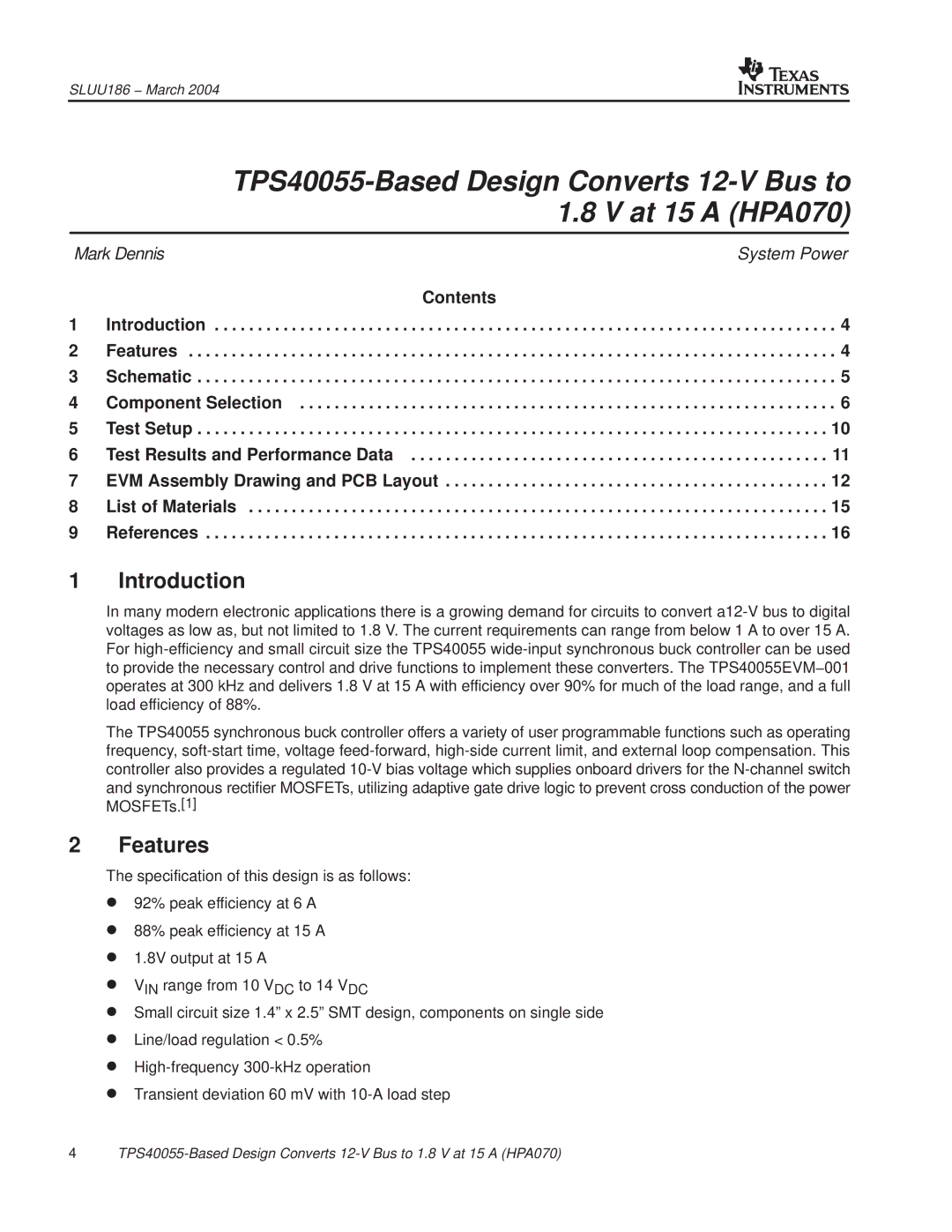
SLUU186 − March 2004
Mark Dennis | System Power | |
| Contents |
|
1 | Introduction | . . . . . . . . . . . . 4 |
2 | Features | . . . . . . . . . . . . 4 |
3 | Schematic | . . . . . . . . . . . . 5 |
4 | Component Selection | . . . . . . . . . . . . 6 |
5 | Test Setup | . . . . . . . . . . . 10 |
6 | Test Results and Performance Data | . . . . . . . . . . . 11 |
7 | EVM Assembly Drawing and PCB Layout | . . . . . . . . . . . 12 |
8 | List of Materials | . . . . . . . . . . . 15 |
9 | References | . . . . . . . . . . . 16 |
1 | Introduction |
|
| In many modern electronic applications there is a growing demand for circuits to convert | |
| voltages as low as, but not limited to 1.8 V. The current requirements can range from below 1 A to over 15 A. | |
| For | |
| to provide the necessary control and drive functions to implement these converters. The TPS40055EVM−001 | |
| operates at 300 kHz and delivers 1.8 V at 15 A with efficiency over 90% for much of the load range, and a full | |
| load efficiency of 88%. |
|
The TPS40055 synchronous buck controller offers a variety of user programmable functions such as operating frequency,
2 Features
The specification of this design is as follows:
D92% peak efficiency at 6 A
D88% peak efficiency at 15 A
D1.8V output at 15 A
DVIN range from 10 VDC to 14 VDC
DSmall circuit size 1.4” x 2.5” SMT design, components on single side
DLine/load regulation < 0.5%
D
DTransient deviation 60 mV with
4
